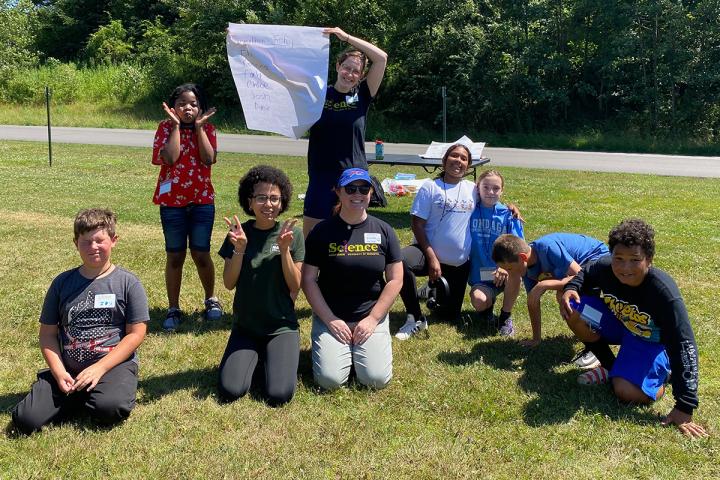
Get Real! Science
Community initiative
Quick facts
Director/PI: April Luehmann
Overview
Get Real! Science is the Warner School of Education and Human Development's science teacher preparation program designed to engage students in real science through an inquiry-based approach. The program includes a comprehensive research program and community outreach initiatives: the Get Real! Environmental Action Camp and Science STARS.
This 15-month graduate program is grounded in authentic experiences and consists of the following unique features:
Experience scientific inquiry as learners
Students have the opportunity to experience what it is like to learn science through inquiry by looking at real scientific problems as scientists would. Students think deeply about the nature of science and engage in real scientific questions while preparing to teach it.
Experience scientific inquiry as teachers
Field experiences are carefully sequenced to support students in their development as a science teacher. Starting with non-traditional, highly supportive, authentic inquiry-based teaching and learning experiences, teachers learn how to create plans and projects to lead students in exciting research, experimentation and discovery. As students move into the traditional classroom environment, they apply this knowledge and learn to teach effectively within the contexts of schools, standards, and accountability.
Experience community and build identity
Participants engage in rich, structured, ongoing opportunities to reflect on and make sense of their experiences of reform-based education in a community of other science educators. These activities support participants in developing a sense of professional identity through reflection and interaction with various communities (kids, colleagues, peers and professors).
Get Real! Science experiences
Get Real! Environmental Action Camp
As part of the Integrating Science and Technology course, students organize and lead a week-long summer camp for middle school students. The students become scientists and investigate the serious water-quality issues at Rochester’s Charlotte Beach. Wearing chest-high hip waders and using secchi disks and other equipment, middle school campers work to collect water samples at the lakeshore and then test them use scientific equipment and analysis to assess the situation and make recommendations.
Science STARS
In the fall, students support a science club of middle-school girls at Rochester’s East High. The Science STARS—Students Tackling Authentic and Relevant Science—meet each week and design their own experiments to find answers to real science questions that they are curious about. This successful program was recently awarded over $1.2 million from the National Science Foundation to expand in Rochester, implement it in two other locations to understand its scalability, and further document and study how the social, cultural and spatial aspects of community-based informal science learning can be designed and utilized to provide unique opportunities for urban girls to develop a science identity.